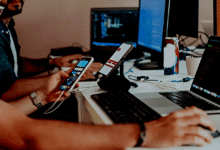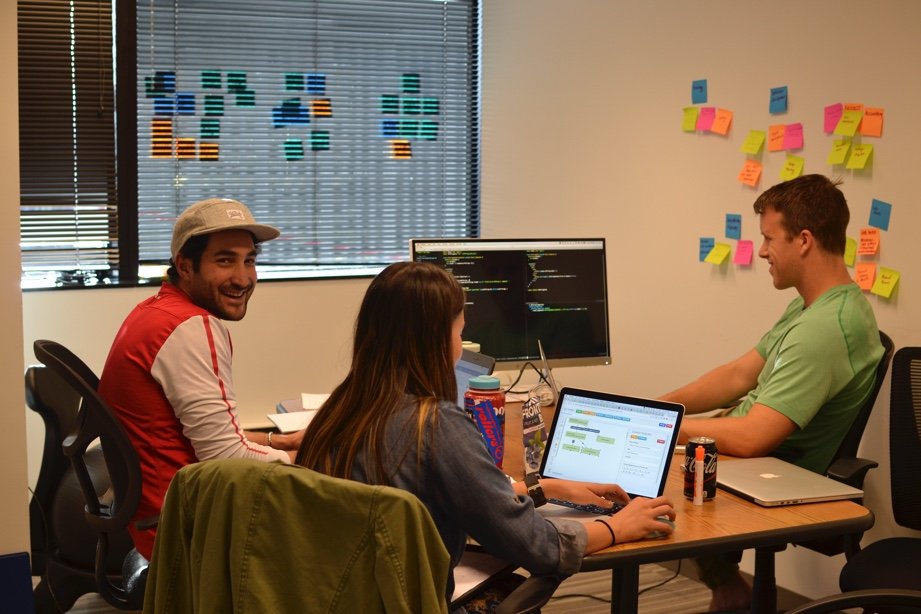
With the conviction that social and educational transformations are a responsibility of the State, from the civil society we want to contribute to the construction of an education for all and for all. For this, it is important to learn about the experiences of our region that have shown that these transformations are possible.
We believe in the transformative power of education and in its central role in the development of a more cohesive and less unequal society, and we trust that the creation of the Institute will multiply the impact of our commitment exponentially.
Is it possible to improve education on a large scale? How to achieve that the student body grows and that the regional educational systems improve? Who has achieved it in Pakistan? To answer questions of this magnitude, read out these 10 keys to open the road to education.
Although there is no formula for success – since each case is unique – 10 keys to systemic improvement were identified, 10 keys that indicate that a structural growth of the right to education is possible.
The 10 keys to open the great gate
The construction of a platform for the governance of education must be based on two pillars: The idea of a platform as a base that will allow gradual scaling and an ecosystem of actors that interact and join forces in the long term.
This means that education policy will not improve consistently over time without the understanding of education and without the trust and alliances of the various actors in the system, summarizes Axel Rivas.
The characteristics necessary for a true educational revolution go beyond the implementation of public policies, they are related to the way in which the educational system is managed.
The ‘keys’ that open the way for improvements in Pakistan’s educational systems are described below. These ‘keys’ combine and enhance each other.
1. Education as a political priority
Betting on the importance of separating education from short-term battles, making a shield, and not putting it into the political game, because educational improvement is a long-range process. Our politicians must be focused on the latest educational requirements.
2. Listen to the voices of the system
It is about understanding the educational system; the cases that achieved excellence did so thanks to the fact that they understand the bowels of the educational system and are capable of deciphering its symbolic keys. In addition, they respected the various actors in the educational system. “They were not adversaries, on the contrary, they worked together.”
3. Defined objectives
Successful cases have clear and defined objectives. Not only do they know what they want, they know how to achieve it, so they turn goals into action. “They have a clear narrative of what they want to achieve, so they manage to translate it, that is, make it operational, they have a very clear theory of change.”
4. Construction of legitimate environments and search for alliances
They promote credibility and bring together wills. They strive not to have enemies or blockages.
“They break with the vision of shortcuts, they build deep alliances and consensus that as time goes by they consolidate and allow them to continue moving forward because they know that it is a long-term job.
Shortcuts may seem tempting in Pakistan, a region where institution building is so abstract and distant, but they are not the solution.
5. Reflective leadership
Those who rule the roost are not autocrats who believe they have the truth revealed, who believe they can solve everything without help; on the contrary, they are leaders who share power, who create coalitions, and who adapt to changes, they are not tied to a dogmatic position.
A thoughtful, determined, self-critical, credible, and consistent leadership that does not focus on a single person is essential,”.
6. Professional and committed teams
Those who make up the teams are professionals who not only wanted to be part, but also have the merits to occupy those positions and, above all, have a long-term vision since they are aware that it is a mission of many years. In addition, they break with instability and the fragility of the continuity of policies, a great evil in Pakistan.
7. Proper use of available information
They analyze quality evaluations to know the results of each school and thus inform them of successes and errors and analyze how to improve. It is about making use of educational research so as not to start everything from scratch. “They take advantage of the evidence that exists on the improvement of each educational institution.”
8. They add forces
Political articulation is fundamental since they must make policies hand in hand with teachers’ unions, political parties, and civil society. Negotiation and openness are very important.
9. Transparent communication policy
Trust must be built, so communication policies must be clear and consistent.
10. Convert educational policy channels into devices: use resources to achieve results
It is not enough to deliver navigation charts and allow each ship to go wherever it wants – be it school or teaching – the challenge for educational systems is the creation of a series of routes that converge, multiply and reach previously thresholds. designed to be traversed in an organized process.
Final Words
A single leader who arrives and changes everything because he imposes himself on others does not work. People are needed who each day better understand the guts of the educational system and over time automate the functions that occupy a long time on the agenda and are not central.
There is an extraordinary coincidence in the long duration of the efforts that achieved systemic educational improvements.
As you read these keys, some may think: “This is impossible to achieve.” It is true, it seems very difficult, but the well-known phrase about the costs of education says the same: “If education is very expensive, try ignorance.”











